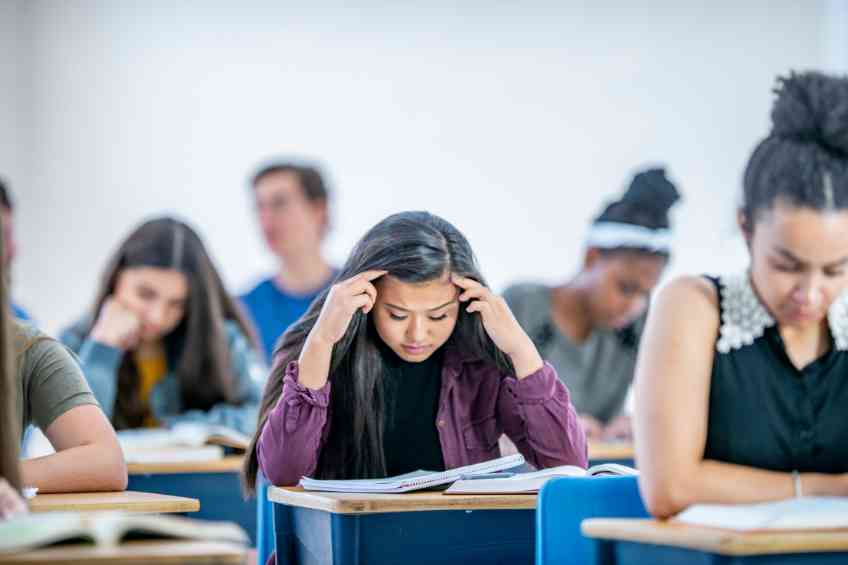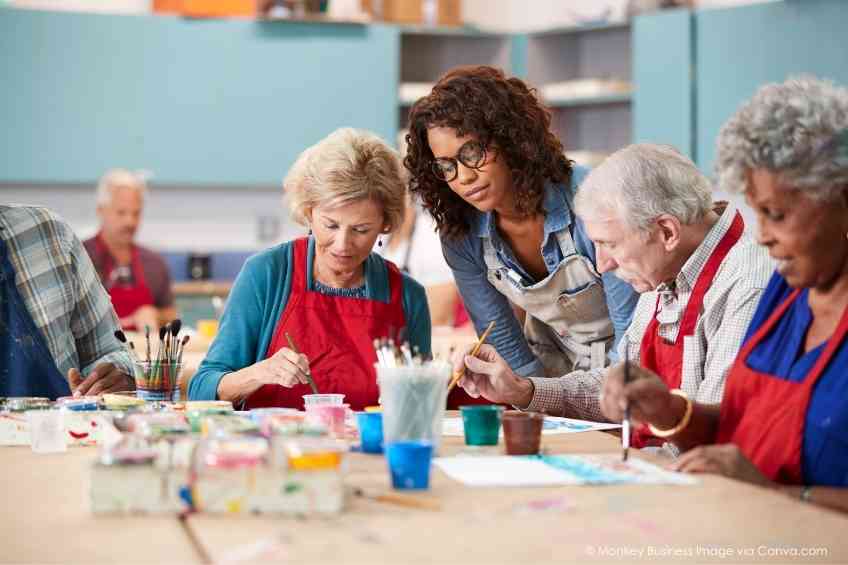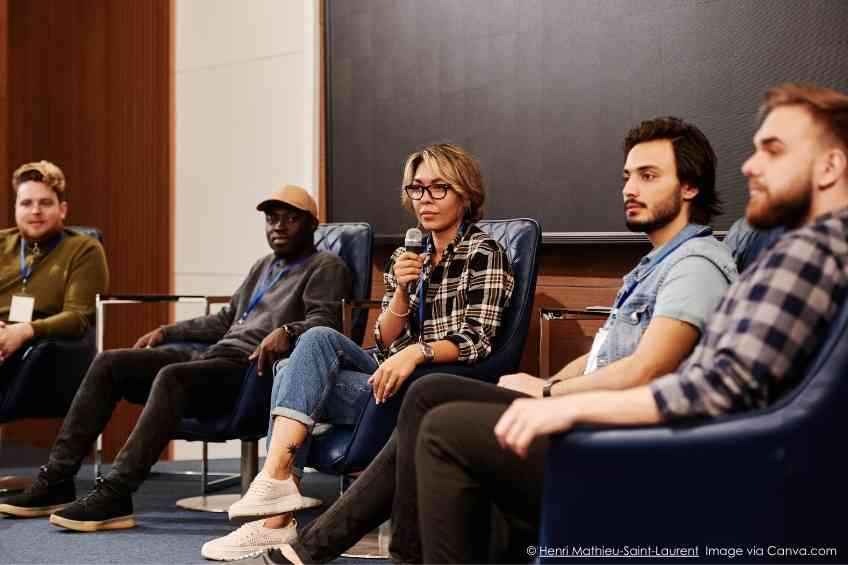The teenage years are a lot of things—some of them great and others pretty challenging. This was always the case, but the hurdles young people face may be greater than ever because of the pandemic. Sure, the local and self-imposed restrictions like quarantining and remote learning have passed, but their impact may be greater than ever as teenagers try to rebuild their social connections and catch up academically. Dr. Liz Nissim-Matheis is well aware of the current crisis facing teens and their families. A licensed clinical psychologist and a certified school psychologist, she has worked for years to address these as other challenges in public and private schools and as the founder of Psychological & Educational Consulting, a private company based in Livingston, New Jersey. She recently spoke with WellWell on why teenagers are having a tough time regaining their balance and what schools and families can do to help.
Is there a way to get a handle on how wide the mental health issues facing teenagers are?
A lot of these areas, anxiety, ADHD, autism, learning disabilities, and behavioral disabilities, have always been there. What has happened is through the pandemic, a lot of these situations and experiences became highly exacerbated. So right now, for the last three years, the most prominent thing we see is anxiety in students and learning disabilities that have gone undetected. Learning struggles as children are getting older, which then results in some behavioral struggles and anxiety and depression.
Is it fair to use the term mental health issues or should we be defining this in some other way? Does it even matter?
The term mental health is now more widely used and more widely accepted. I’ll have my own children saying I need a mental health day. So clearly this language is becoming a little bit more commonplace and a little bit more accepted. I’m in the field every day, so I’m the biggest proponent of it all and I want to talk about it all the time. So, to me, there is no stigma, but I understand the reality is yes, there has been a stigma.
You mentioned the impact of the pandemic and the consequences for academics, socialization and families. Was there a growing problem before the pandemic?
From my experience, there was a great deal of steadiness in what we were seeing in the practice up until the pandemic, and then things kind of blew up and changed course a little bit. A lot of child study teams and schools were shut down and went virtual. So, children couldn’t be evaluated. There’s absolutely zero blame or anything like that being placed on anyone because we didn’t know what we were doing. We were doing the best we could. We didn’t have a protocol for how to function in a pandemic when there had to be a shutdown. So, I think every school and every family did the best that they could. However, we didn’t know what we were doing. School looked different, virtual school was different. Kids were not engaged, kids were not attending class and I know that for a lot of students, I was contacting schools and working with parents to find ways to help children to stay engaged in the learning process.
But having your face on a screen when you don’t usually see your face on a screen was especially hard for some adolescents who were already very self-conscious about their looks. It took a bad situation in terms of development and made it really difficult. A lot of kids didn’t go to class. A lot of kids didn’t listen. The level of instruction was different. The demands and expectations were different in schools. Again, everybody did the absolute best that they could. But sadly, we missed a lot of education. We missed a lot of socialization and it’s having an impact.
How is it manifesting itself? Is it anxiety? Are there some issues that are more prevalent than others?
A lot more anxiety and a lot more depression. Kids’ social skills declined and social clicks and groups changed depending on the child who went to school versus the child who remained virtual. Everybody wanted to do this differently based on the information they had and how it impacted them and their family. So, some families were OK with their children socializing, either in their homes or outside of their homes. Some parents were not, so it created a lot of isolation; friendship groups changed. A lot of milestones that would have been hit during those times weren’t. I saw a lot of students who said, “you know, I’m graduating high school and I don’t have any friends.” I encouraged them to find other groups of friends. But what had happened is compared to the kids who maintained contact, those who stayed home or primarily stayed home kind of came out of the loop. And with teens, if you’re not there, then you know you don’t get invited during those spontaneous times when plans are being made. Again, there was such a wide gamut of comfort with socializing inside and outside the home, with masks without masks, with social distancing or not—and all of that impacted our kids. And let’s not forget how quickly everything happened and how the whole world shut down. We’d never experienced that before, and a lot of kids became agoraphobic. A lot of them became germophobic, and we’re still working on helping them to work through that because it was sudden. It was quick. We’d never experienced it before and our kids were scared.
Do these challenges go away naturally? How do we deal with them? What are the next steps?
I think we need to acknowledge it and treat it and work with it. It’s not going to go away on its own. A whole world that went into a panic mode and literally shut down. It’s a big deal because it wasn’t like, oh, we just did that here in this neighborhood or this community. It was everywhere. And it was scary. And I think for a lot of our kids, they’re thinking, well, how do we know there isn’t going to be another shutdown? How do we know that there isn’t going to be another virus? This just took that anxiety and really magnified it. But I think it’s really important to address whatever our children are struggling with and help them to build coping resources and to understand what’s in their control and what’s not in their control.
So how do schools and families deal with this?
There have been a lot of undiagnosed learning disabilities and learning challenges. Curriculums still stand as they were and that’s not really accommodating. The fact that a year and a half of instruction was lost and we’re still expecting our kids to live up to those standards, but they can’t. So, kids need a lot of academic support. I’ve seen it at my son’s high school. Three times a year they set aside a half-day for all the students to be able to go to teachers and get extra instruction or makeup work so that they’re caught up. They’re building in days for catch-up. And there’s just more awareness. More teachers and more school staff are aware that our kids may be struggling with mental health issues and offering opportunities for them to talk about it. Having people in the building to talk about it is important—the school counselor, the guidance counselor, the social worker or the school psychologist. Sometimes it’s also the school nurse or the principal or the vice principal. Understanding that at times when our kids are acting out, it’s not necessarily that they’re just acting out for the sake of acting out. No kid wakes up in the morning and decides I’m going to go to school today and flip. They’re acting out because they’re trying to communicate with us in an alternate way. They may not have the awareness, they might not have the insight, they might not even have the language to be able to say I’m anxious or Math is hard, or I can’t keep up the pace and the classroom is really fast.
And it’s hard because we’re asking our teachers to do a lot and to be able to notice what a child is struggling with. A lot of kids can’t and won’t advocate for themselves. They’re embarrassed by it. And that’s where then the parents come in and parents, you know, noticing that my child’s grades are declining in this area and asking questions. And offering times to talk, especially with teens. Teens don’t love to talk when you want to talk to them. But just keeping the lines of communication open, consistently trying to have as many family meals together as possible. It doesn’t have to be an in-depth conversation. It could just be like what’s going on? Staying aware of what’s going on in your children’s lives. Who are they friends with? What are their struggles in those areas? How are they doing in their classes? What’s going on with their teachers? That’s it’s a lot of work on our end and it has to be initiated through us to create this relationship and the openness. They need to be offered a place of low judgment and low blame because the minute our teens feel like they’re being blamed, they’re not going to come back.
What are some of the signs that parents need to look out for that something may not be right?
My go-to is if you see a change in functioning, you know if your child is sleeping more or sleeping less or eating more or eating less. Maybe they have gained a lot of weight or lost a lot of weight. Their grades are declining and maybe it’s gradual, maybe it’s sudden. Maybe they used to talk to friends and see friends and now they’re not. So, any change that you’re seeing that’s gradual or sudden, take note of it because that’s telling you something. Again, our children, our adolescents and our young adults as well, they may not always know what they’re feeling. They just know I don’t feel right or I don’t like the way I feel. They’re not going to be forthcoming. Our kids do a lot of avoiding and distracting, distracting through social media, avoiding by not talking about things, not acknowledging things.
Once a parent begins to see these changes what do they need to do? Should they try and connect to their child? Do they reach out to the school system? Do they reach out to other professionals or some combination?
My go-to is always to go right to your child and say: “Hey, I noticed that you know you used to talk to your friends more and make plans with your friends more and now you’re not.” Something is happening and it could be a change in the dynamic in the friendship group. It could be that the child is just overwhelmed. Maybe there’s some social anxiety. Maybe there’s a new peer in the group. If you don’t know what’s going on with your child, ask them. And if they don’t want to talk, let them know, I’m here. I love you. I care about you. And when if you’re when you’re ready to talk, I’m here.
Teens are in that unique place in their development because they want to be in control. They want to dictate and call the shots. So, creating that space for them to make their decisions as opposed to ‘we’re talking about this now’ is important. Sometimes when my kids are having a hard time putting things into words, I’ll tell them they can send me an e-mail, text or call. They can go upstairs, and I can go downstairs, and we can speak by phone. We can go for a car ride. Face-to-face interaction can sometimes be very overwhelming. Car rides are great because you’re not looking at each other. If you know something is happening with this child; they’re telling you that a person’s been bullying them or picking on them or making them uncomfortable, then let me call the guidance counselor, the principal or the vice principal and let’s problem solve. Especially with a teen, you want to problem-solve together when it’s appropriate so that they have an equal part in it and they can begin to use their language to advocate for themselves.
What type of problems can develop if anxiety level isn’t addressed effectively? Does it escalate? Can it morph into something perhaps more dangerous?
I think that when a child doesn’t feel seen, doesn’t feel heard or doesn’t feel validated, there are consistent issues around them that are not being resolved or addressed. We think about this even as adults when we feel like there’s nothing we can do to make this better. No one is even noticing the sense of hopelessness, which can turn into severe anxiety and severe depression, where children sometimes start refusing to go to school or they stop functioning or stop doing the things that they once liked. We ultimately don’t want our children to completely try to mask their feelings by using substances to numb and avoid. You know, whatever you’re struggling with, it’s not going to go away. We need to address it. We need to look at it. We need to talk about it. We need to help find outlets to relieve stress. At school, letting teachers know when this child is feeling overwhelmed is important. Let them go to the counselor. Let them go to the nurse’s office. Let them go to the principal so they can take a walk, decompress and ultimately return.

About Liz Nissim-Matheis
Dr. Liz Nissim-Matheis is a licensed clinical psychologist and certified school psychologist. She has worked in public schools as a member of the Child Study Team as well as the Coordinator of the Child Study Team. During her tenure in private school, she served as the team leader to provide support to teachers and paraprofessionals, emotional support to parents, and school-based counseling for students as well as behavior management. She is also the founder of Psychological & Educational Consulting, a private firm in New Jersey that offers a range of support.
To learn more, please visit Psychological & Educational Consulting.










